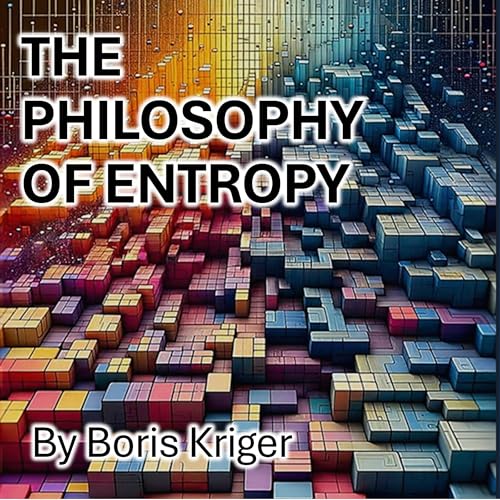
The Philosophy of Entropy
Order, Decay, and the Meaning of Equilibrium
Échec de l'ajout au panier.
Échec de l'ajout à la liste d'envies.
Échec de la suppression de la liste d’envies.
Échec du suivi du balado
Ne plus suivre le balado a échoué
Obtenez gratuitement l’abonnement Premium Plus pendant 30 jours
Acheter pour 18,74 $
-
Narrateur(s):
-
Timothy Hagaman
-
Auteur(s):
-
Boris Kriger
À propos de cet audio
Entropy is one of the most profound and misunderstood concepts in modern science — at once a physical quantity, a measure of uncertainty, and a metaphor for the passage of time itself. Entropy: The Order of Disorder explores this concept in its full philosophical and scientific depth, tracing its evolution from the thermodynamics of Clausius and Boltzmann to the cosmology of the expanding universe, the information theory of Shannon, and the paradoxes of quantum mechanics.
At the heart of this study lies a critical insight: entropy in its ideal form can exist only in a perfectly closed and isolated system — a condition that is impossible to realize, even for the universe itself. From this impossibility arises the central tension of modern thought: the laws that describe equilibrium govern a world that never rests.
Bridging physics, philosophy, and cosmology, this book examines entropy as a universal principle of transformation rather than decay. It situates the second law of thermodynamics within a broader intellectual landscape, connecting it to the philosophies of Heraclitus, Kant, Hegel, and Whitehead, and to contemporary discussions of information, complexity, and emergence.
With both scientific rigor and literary clarity, Entropy: The Order of Disorder invites listeners to reconsider the nature of time, the limits of isolation, and the open, evolving character of reality itself. Entropy, it suggests, is not the death of order but its necessary condition — the measure of a universe that survives precisely because it can never be perfectly closed.
This work will appeal to physicists, philosophers, and listeners across the sciences and humanities who seek to understand how the most universal law of decay reveals the unending creativity of the cosmos.

